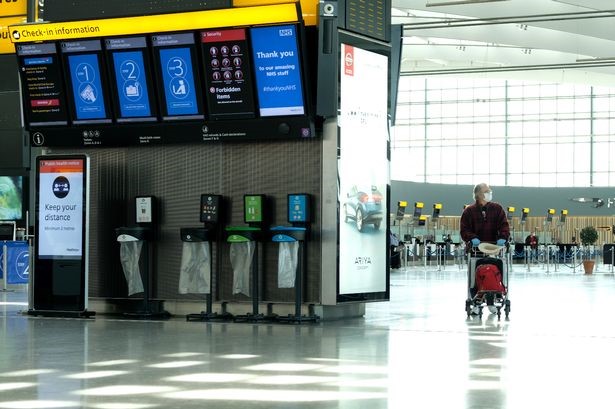The world a mere few months ago looks vastly different to the ‘normal’ the country is now living. But the situation we are all facing is anything but normal. The impacts of COVID-19 are wide ranging and of serious consequence. As we begin to look ahead and develop plans to recover, one of the most vital elements is to turn our attention to getting the UK’s economy back up and running.
The UK’s aviation industry is the third largest in the world, reflecting 100 years of innovation and leadership. It has propelled the country into an economic position of strength as this island nation has taken advantage of access to international trading routes. The UK is one of only three countries in the world with leading positions in all parts of the value chain; aircraft and engine manufacturing, oil, airlines and airports.
Aviation is not just another economic sector. It is the cornerstone of the economy and a key strategic one for the whole of the UK. Every year, forty per cent of the UK’s non-EU exports by value are flown in the cargo hold of passenger planes from Heathrow. This cargo capability is invaluable in meeting demand for Scottish products like salmon and whisky across the globe, flown from Scottish airports to Heathrow and on to long-haul markets such as the US, Vietnam and Singapore.
As Heathrow has remained open throughout this unprecedented situation, we have been able to use our capabilities to prioritise air freighters with medical supplies and scaled up our cargo operations to help all corners of the UK get equipped in the fight against this pandemic. Our spare capacity has also allowed us to welcome Scotland’s own Loganair to our terminals, as the airline strives to keep lifeline air services between London and the Isle of Man open even after the closure of their usual base at London City airport.
While dedicated freighters have been indispensable in the fight against the pandemic, the nation’s economy relies on the passenger planes that we normally welcome, filled with inbound tourists and international students enjoying Scotland’s beautiful scenery, learning at its world-leading universities and taking advantage of its innovative business environment. And this is on top of cargo coming in that keep Scottish industries going and supply chains open. Unless UK aviation can get up and running in the coming months, there will be massive job losses in sectors that extend beyond the aviation sector and in all four nations. The Scottish economy, as in the rest of the UK, will be held back; leisure and tourism will grind to a halt, factories will remain idle and all kinds of Scottish exports won’t get to market. Action is needed now to deliver a new way of travel in the future that will get the economy going, in a safe and sustainable way.
This is why Heathrow is calling on the UK Government to take a lead and come up with a Common International Standard that will be fundamental in restoring trust back in safe travel. And critically, it will be consistent in all airports that passengers travel through on our island.
Until a vaccination is developed, it’s likely multiple measures will need to be in place to tackle the threat. That is why Heathrow has started to trial what these future measures could look like. We are testing a host of technologies and reviewing all of the airport’s processes to develop a suite of measures that work together to reduce the risk of transmission and infection. We’re at the very start of this process but we know that any measures ultimately implemented will need to be scientifically necessary, passenger friendly, medically beneficial and suitable for air travel. We are also clear that this should not come at a cost that is unaffordable for smaller airports who are the lifeblood of economies such as Inverness. All our findings from the trials will be shared with the UK Government and airports, all working towards a shared goal – to get the benefits of aviation flying again.
Whilst we work through this crisis, it would be remiss to forget about the challenges that lie beyond it. In hindsight, it is now possible to see that some of the early warnings of a pandemic were missed by governments across the world, at huge personal and economic cost. We must not make the same mistake again and continue to dismiss the early warnings of climate change, jeopardising the progress which was made pre-COVID-19.
Before this pandemic, Heathrow had progressed our plans for carbon neutral growth including funding a regenerative carbon offsetting project near Dundee and the UK aviation sector had taken a global lead in committing to meet the Paris Accord target of net zero emissions by 2050.
The plan should be to accelerate this, not take our foot off the pedal. For example, as part of any post-crisis economic regeneration plan, the Scottish Government could stimulate development of Sustainable Aviation Fuel production, a sector in which Scotland could be a global leader, using its natural resources and low cost energy to create a new export sector in synthetic and biofuels.
The unprecedented circumstances we are facing require an unprecedented response. Both the Scottish and UK governments must prevent a prolonged economic paralysis where holidays, celebrations, reunions and travel are put on hold indefinitely. When this virus is beaten, the country must emerge fighting and raring to tackle the recovery ahead together. Heathrow is more than just an airport – it is this country’s economic cornerstone supporting supply chains, tourism, retail and education – and we stand ready to help build a prosperous and resilient future with our Scottish partners.






